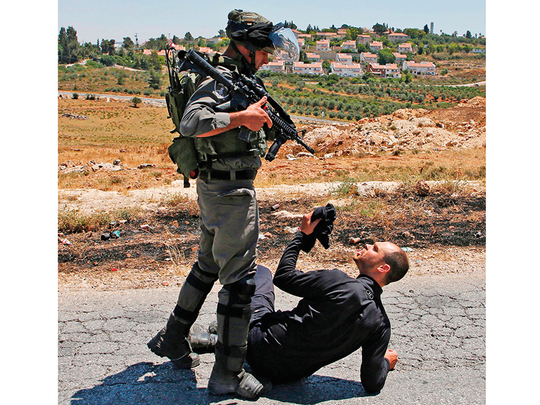
Occupied Jerusalem: Israeli policies in the occupied West Bank and Gaza are at the root of Palestinian hardship, the United Nations said Wednesday.
“Occupation policies and practices remain the key cause of humanitarian needs in the occupied Palestinian territories,” the UN Office for the Coordination of Humanitarian Affairs (OCHA) said in a report.
Palestinians living in the Occupied West Bank and besieged Gaza suffer from a lack of basic security, it said, adding that the split between president Mahmoud Abbas’s West Bank-based administration and the rival Islamist movement Hamas in Gaza also restricts humanitarian work.
“At its heart, the crisis is one of a lack of protection for Palestinian civilians — from violence, from displacement, from restrictions on access to services and livelihoods, and from other rights violations.”
Israel occupied the West Bank and the Gaza Strip during the 1967 Six-Day War. Repeated efforts to negotiate a solution to the conflict and establish an independent Palestinian state alongside Israel have stalled.
OCHA’s 15-page Humanitarian Overview for 2016 noted Israeli demolitions of Palestinian homes, including in annexed East Jerusalem, had peaked.
“In the West Bank, more Palestinians were displaced in 2016 (1,601, including 759 children) due to demolitions of their homes by the Israeli authorities than in any year since OCHA began recording the phenomenon in 2009,” it said.
In the Gaza Strip, where unemployment is among the highest in the world, a strict Israeli blockade has been in force for over a decade.
“Israeli restrictions on the entry of national staff of aid organisations to and from Gaza intensified in 2016, with 31 per cent of permit applications to enter or exit Gaza denied,” OCHA said.
That is up from an average of four per cent in 2015, it added.
It said humanitarian operations in Gaza were impeded by restrictions imposed by the Hamas authorities, donors blocking contact with them, the ongoing closure of the Rafah crossing with Egypt and the internal Palestinian divide.











